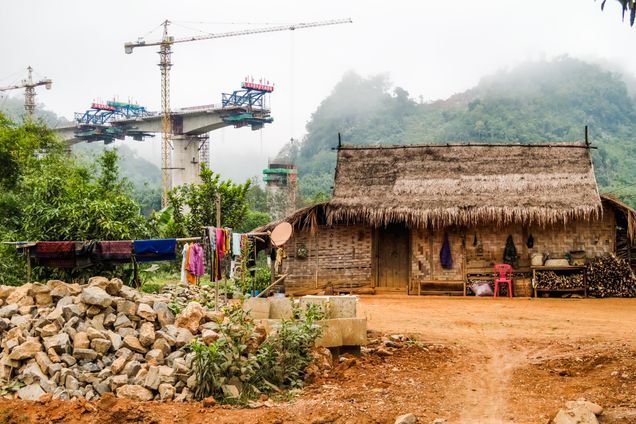Mind the Gap: Grounding Development Finance and Safeguards through Land Compensation on the Laos-China Belt and Road Corridor

China’s vast construction of infrastructure around the world involves not only promises of transnational cooperation, connectivity, and national development, but also local dispossession. Indeed, construction requires large tracts of land, which often leads to the displacement of local people. In Laos, investments since the early-2000s have entailed land loss and questionable safeguard practices. Despite pressure on Chinese policy banks and through the Belt and Road Initiative (BRI) to strengthen regulations for infrastructure construction, the influx of BRI mega-projects in Laos has exacerbated ongoing social and environmental issues.
Using Laos-China Railway land compensation as a case, a new working paper from Jessica DiCarlo presents a grounded and multi-scalar analysis of Chinese development finance and environmental and social safeguards. Through policy analysis, ethnographic, and qualitative methods, DiCarlo examines regulatory frameworks related to displacement and land compensation for the railway—first, in the context of broader changes across Chinese development finance; second, in terms of how villagers experience implementation on the ground; and finally, how domestic regulations evolved through the project’s development cycle.
As existing projects are subsumed within the BRI, DiCarlo asks: Have safeguards improved as BRI development finance was introduced? Which host regulations were in place when project agreements were signed and how have they been updated throughout the project’s development? DiCarlo found that focusing on one project underscores the need to dissect how policy bank safeguards compare and interact with domestic policies and local implementation. This case points to the challenges of continued reliance on host country standards in contrast to pressures to improve safeguards domestically and with international development finance. DiCarlo also highlights how these challenges are exacerbated by high-profile projects and argue that more fine-grained, project-based analysis of how safeguards are used begins to answer questions of whether pressures to improve Chinese development finance translate on the ground.
Jessica DiCarlo is a PhD candidate in the Department of Geography at the University of Colorado Boulder and a research fellow with the GDP Center’s Global China Initiative. She specializes in critical development studies, political ecology, and infrastructure studies.
Read the Working Paper